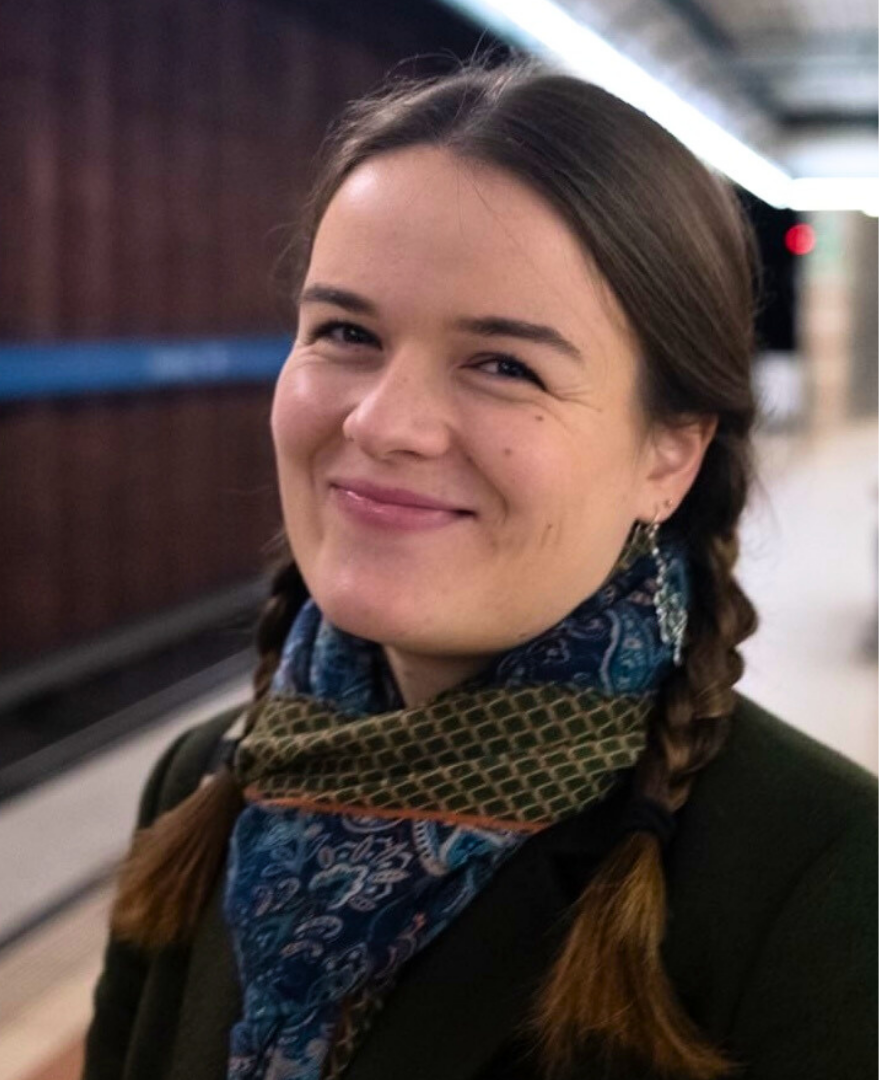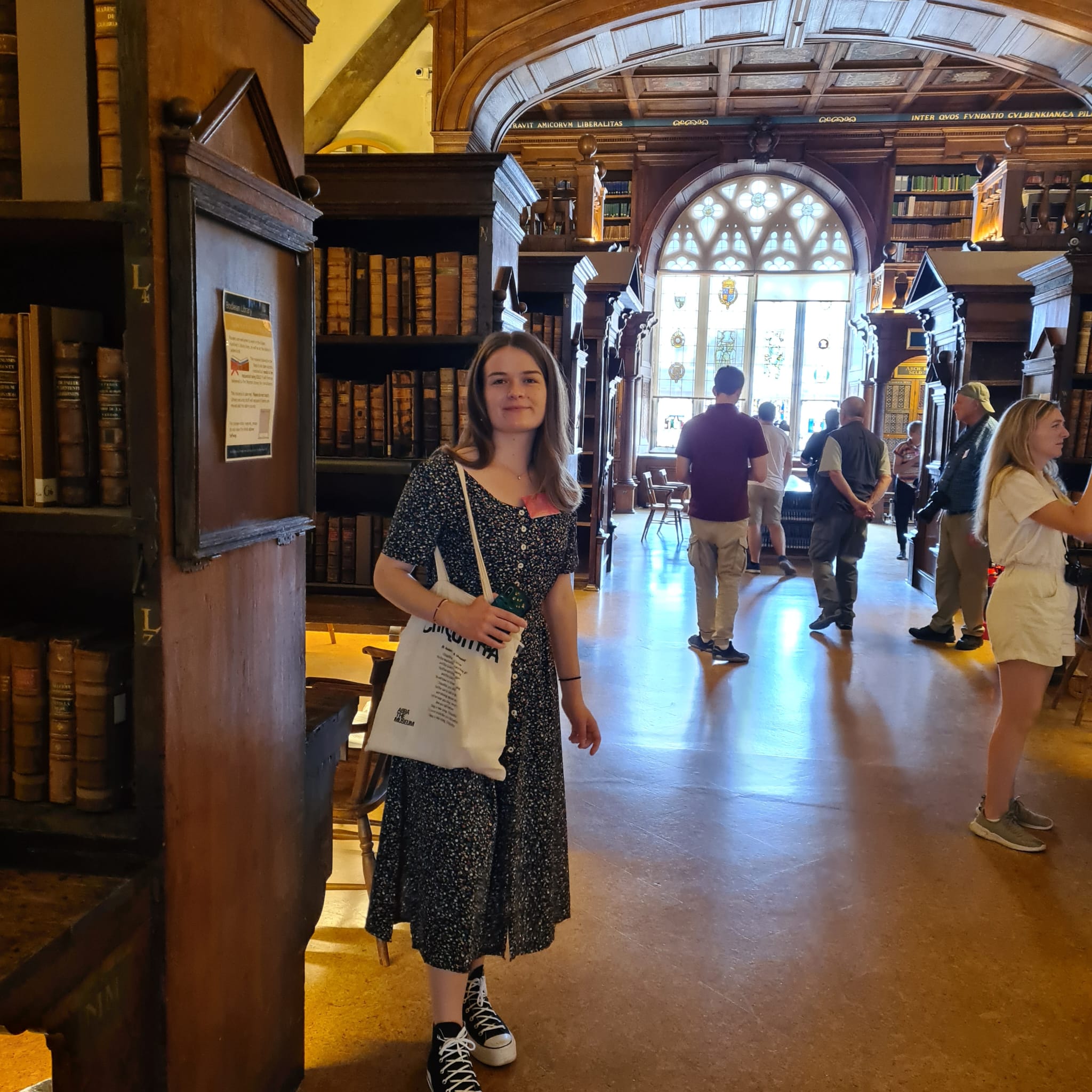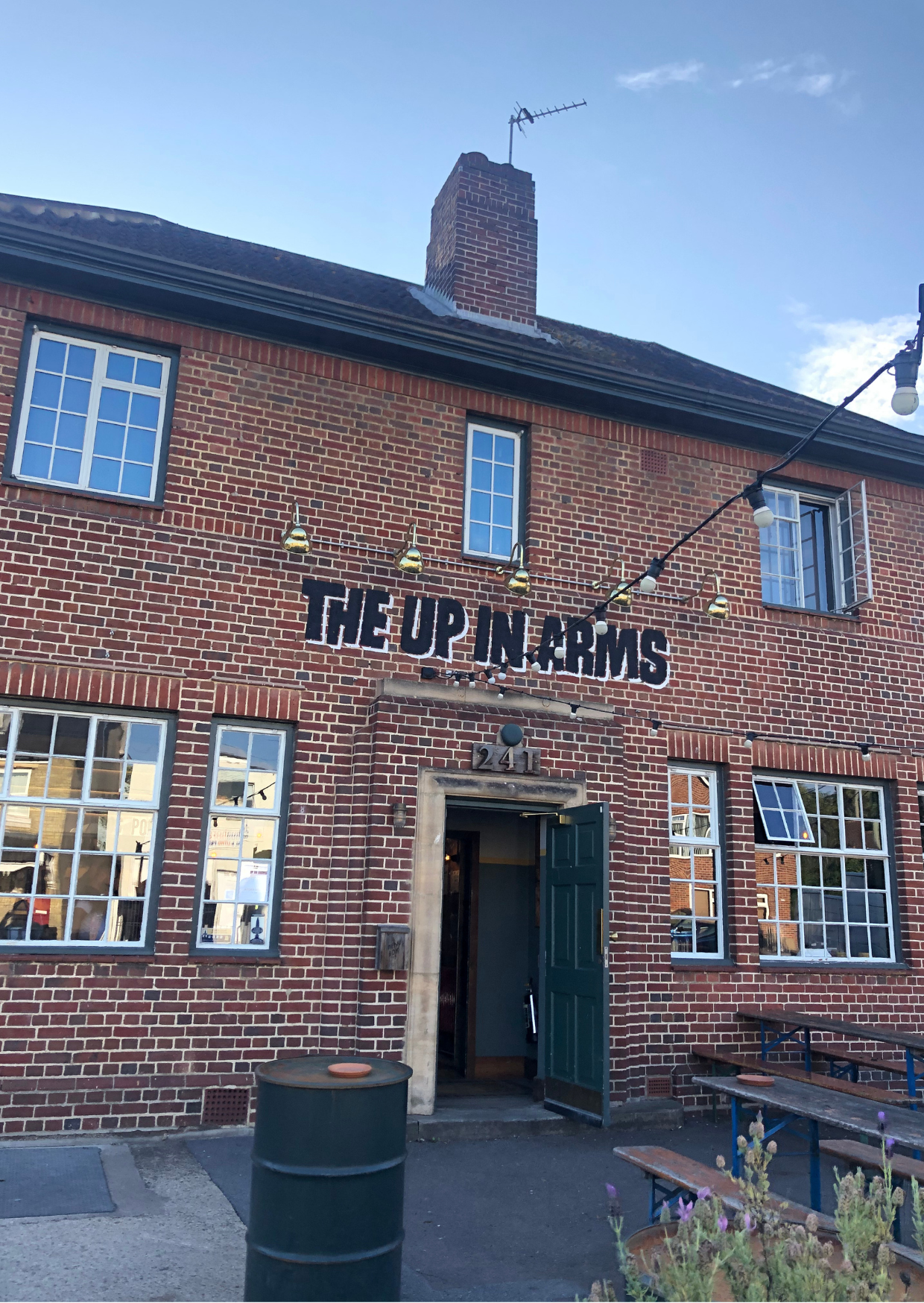
FENS Voices | Emma Nesbit: From MSc to PhD
01 April 2025
FENS News, Neuroscience News
In August 2023, Emma Nesbit, then a Neuro-Cognitive Psychology Master student at Ludwig-Maximilians-Universität München, began a two-month internship at Oxford University’s Physiological Neuroimaging Lab. This opportunity, which allowed her to conduct research and receive specialised training, was made possible by FENS/IBRO-PERC Exchange Fellowship Grant of EUR 2.200.

During her internship at the Physiological Neuroimaging Lab, headed by Prof Charlotte Stagg, Emma deepened her expertise in motor learning and motor recovery while gaining hands-on experience with transcranial magnetic stimulation (TMS), wireless electroencephalography (EEG), and data processing using MATLAB and GraphPad Prism. She also contributed to participant recruitment, set up the lab’s wireless EEG system, and attended research meetings at the Wellcome Centre for Integrative Neuroscience, engaging with scientists from around the world.
Since returning from Oxford, Emma has begun her PhD at the Max Planck Institute for Human Cognitive and Brain Sciences (IMPRS CoNI), where she focuses on brain-behaviour interactions and motor control.
In March 2025, she sat down for an interview with FENS Communications Assistant Quaid Cey to share some of the highlights from her Exchange Fellowship, explain how the experience impacted her scientific career, and offer her advice to prospective applicants.
Read the full interview below.
Can you tell us a bit about yourself? How did you first discover your interest in neuroscience?
Emma: Yeah, sure! I’m Emma Nesbit. I was born in the U.S., I’m half-English, half-German, and I grew up in France and Germany. Throughout high school, I was always quite interested in biology, but also in other things, like mathematics. After school, I was kind of confused about what to do, but a friend introduced me to the topic of psychology. I decided to do a bachelor’s in psychology at Leiden University in the Netherlands. I really loved it, especially the biological aspects – I loved learning about anatomy. I think most of my peers probably wanted to go more in the clinical direction and become therapists, but I was set on research from early on. I was just very curious about how the brain works, how something that happens in the brain is translated into behaviour and interactions and shapes the world.

After my bachelor’s, I decided to study neurocognitive psychology in Munich. That was a two-year programme, also very research oriented. At that time, we had to do an internship, which is why I looked into the possibilities to go abroad. I was always interested in going to the UK, and then I found out about the FENS/IBRO-PERC Exchange Fellowship, which I’m super grateful for, because it gave me the opportunity to visit the Physiological Neuroimaging Lab at the University of Oxford, where I did a two-month internship. It was a really great experience.
Now, I’m a PhD candidate at the Max Planck Institute for Human Cognitive and Brain Sciences in Leipzig. I started in October, so it all still feels very fresh and new, even though it’s actually been half a year.
What are your specific research interests, and how did they guide your decision about where to apply? You mentioned an interest in studying in the UK, but was there something specific about that lab that attracted you?
Emma: I chose the Physiological Neuroimaging Lab specifically because it combines many things. I think the first and foremost reason is that my research interest lies in the field of motor rehabilitation and stroke recovery – I find neural plasticity in general very fascinating, both in patients and in healthy individuals. So, I started looking for researchers and labs that were doing something with motor learning and recovery, particularly those that worked with humans, and there quite a few labs in the UK focused on that. Closer to me, or at least in Munich, the focus was always more on animal research.
That was one big reason, and another is that I just loved how specifically at the Physiological Neuroimaging Lab, these three disciplines were combined: experimental psychology, clinical neuroscience, and computational neuroscience. I thought there was a really interesting overlap between those fields, and as I saw it, they had a big impact on people’s lives, with some of the studies being about clinical trials where they were implementing rehabilitation strategies for patients. I thought that was super fascinating.
Going into the internship, what were your expectations? What did you hope to gain?

Emma: Two things, I would say. First, because I was still starting out in this field, I wanted to deepen my knowledge, hear about different people’s research, and connect with them. Second, I wanted to learn a specific skill. I had never worked with transcranial magnetic stimulation (TMS) before, and a major goal of mine was to learn this technique – not just apply it, but also work with the data you acquire with it.
It was also my first real project where I was working with coding in a wider sense. I was using MATLAB, which was completely new to me at the time. It turned out to be very useful, because I’ve been using that programme in almost every project I’ve done since.
Generally speaking, how would you say that the internship impacted your career?
Emma: I think it has given me very nice and realistic view of what it’s like to be a researcher day to day, how your tasks really vary. The great thing was that I was involved in many steps of the study. I remember being on the phone recruiting participants for the study, but then also being there to applying the methods – TMS and EEG caps – as well as doing the data analysis and everything else. Even though I wasn’t there for a long of time, I feel like I saw a lot and it prepared me for what it would be like to be a PhD student. It motivated me even more to pursue this academic route. Later, for my master thesis, I chose a topic that was related to TMS, so that was then implemented directly in my own work.
Are there any highlights from your time at Oxford that you want to share?
Emma: Yeah! I was incredibly happy to work with two post-docs that I met there – Dr Ioana Grigoras and Dr Catharina Zich – who were both super helpful. I’m still in close contact with Iona. She really helped me a lot, also with the questions I had when applying for the PhD. I found somewhat of an advisor in her, or a mentor. It’s been super nice to have had the experience to meet her and to be also able to stay in contact.

One nice event that I remember from my time there was an open day for new prospective students in the summer. They were organising an escape room, and my parents were visiting me at the time, so we participated. It was a very nice experience, and really well done – they had 3D-printed brains, and you had to solve puzzles. It was also just fun to show my family around Oxford and take them to the lab where I was working.
What advice would you give to someone considering an internship or fellowship like this? What would you tell them if they’re hesitant to apply or feel uncertain about their skills? How would you to motivate them?
Emma: Don’t be intimidated. Trust that you have skills, and trust that it’s also very valuable if you want to learn and you’re open about it. With the PIs that I met, I openly admitted what I couldn’t do and what I was willing to learn, and I think it was a good strategy.
It’s always good to reach out to people who have done it before and try to gain some insights, but overall, I would say to just go for it, really, because it’s a great experience. I would recommend it to anyone.